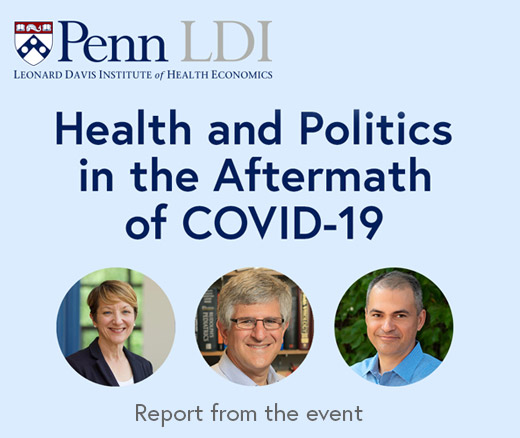
Contradictions That Confuse Federal Food Policies
Announcing Bold New Goals While Crippling the Infrastructure Needed to Achieve Them
Population Health
In Their Own Words

The following excerpt was published in the New England Journal of Medicine on July 26, 2025.
Public policies affect population health. Recent work suggests that if the entire United States adopted the policies of the states with the highest life expectancies, national life expectancy would increase by 2.5 years. Researchers and policymakers typically view these policy effects as accruing through changes in the availability of material resources and opportunities that protect and promote health. For example, policies can change access to nutritious food, safe and affordable housing, or high-quality health care; provide financial or in-kind support during times of need; improve access to educational or labor-market opportunities; and enhance neighborhood-level social and environmental conditions.
However, this view ignores the social context in which policies are generated and to which policies themselves contribute. Policies are tied to social narratives and norms that give rise to them, and policymaking itself is a tool for communicating or building these narratives and norms. For example, a prevalent social narrative in the United States is that of “deservingness” — the idea that people get what they deserve for the work they put in. This social narrative not only influences which policies are pursued — such as work requirements in social safety-net programs or income transfers tied to work — but is reinforced by those very policy choices.
Insights from political science, economics, and psychology suggest that policies, by way of the social narratives they reinforce, can affect health by mechanisms that are independent of any effects on resources and opportunities. People make sense of the world with “mental models.” These models tell them how the world works, what is valued, and what their place in society is. Narratives and policies may or may not align with these mental models, and misalignment with them changes people’s beliefs and expectations, their sense of belonging, and their understanding of their status. Each of these factors, in turn, has been shown to affect stress, allostatic load, and, as a result, mental and physical health. Such effects can occur while policies are being publicly proposed and discussed, long before they are implemented or have any effect on resources and opportunities.
Recent evaluations of specific policies illustrate the importance of social narratives and norms for population health. Many of these studies focus on childbirth and young adult mental health outcomes, which are exquisitely sensitive to psychosocial and physiological stress. For instance, in the 1990s, there was wide public discussion of “three strikes and you’re out” laws. This discussion was racially charged, in that some Black men were described as “superpredators.” Well before their implementation, these laws led to sharp increases in the proportion of babies with low birth weight among Black women. Similarly, even the public discussion of a punitive immigration law in Arizona, which made the lack of documentation a misdemeanor and levied penalties for hiring and transporting undocumented workers, led to reductions in birth weight among Latina immigrants, despite the fact that the policy was never actually implemented. In contrast, the passage of marriage-equality laws, which expanded the rights of members of a previously marginalized group and reduced stigma against them, led to immediate reductions in suicide attempts among gay, lesbian, and bisexual adolescents.
Read the full piece here.


Announcing Bold New Goals While Crippling the Infrastructure Needed to Achieve Them

Promising New Evidence and What’s Next

From 1990 to 2019, Black Life Expectancy Rose Most in Major Metros and the Northeast—but Gains Stalled or Reversed in Rural Areas and the Midwest, Especially for Younger Adults

A Penn LDI Seminar Focuses on Why They’re Important for the Future

Former Philadelphia Health Commissioner Warns That Gutting the CDC, Undermining Vaccines, and Politicizing Science Will Leave the U.S. Dangerously Unprepared for the Next Pandemic

Rural Parents Had More Emergency Visits and Insurance Loss Than Urban Peers, an LDI Study Shows. Integrated Baby Visits Could Help All Parents Be Healthier